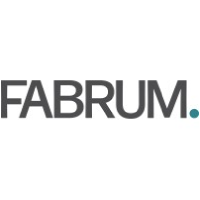
Fabrum.
Fabrum underscores global green ambition with NetSuite implementation
With the search for green energy taking giant leaps forward in Christchurch, rapidly growing hydrogen fuel innovator Fabrum realised its global ambitions should be matched with a system capable of scaling far beyond New Zealand’s shores. That’s what led it to choose NetSuite Cloud ERP, rapidly implemented and expertly supported by Project Salsa with deployment taking just two months. As a result, the company has an enterprise resource planning solution delivering immediate improvements to its operations today, and readying Fabrum for a bright, hydrogen-powered future.
Founded in 2004 by Christopher Boyle and Hugh Reynolds, Fabrum has a long history of innovation, precision engineering and delivering solutions supporting sustainable existence. Over its nearly 20-year history, Fabrum has worked on high-profile projects including collaborating with NASA on a Liquid Air life support package for astronauts and a CO2 sublimation project for the Mars lander program; with Rolls Royce developing superconducting systems; and developing hydrogen-powered drivetrains for Team Emirates New Zealand’s Chase Zero boat. Fabrum’s contributions to aviation include projects to decarbonise the industry, co-developing the world’s first electric aircraft engine for Magnix, and building superconducting electric motors/rotors for SAFFRAN/Airbus.
The company is currently manufacturing green hydrogen systems for ground-based infrastructure at airports and also onboard fuel tanks to carry liquid hydrogen for zero-emission flights.
SITUATION
While it had an existing set of systems for business management, these weren’t strictly an ERP solution in the modern sense of the word, explains Fabrum CFO Nick Kolff-Loughrey. “We had a manufacturing system designed for small engineering companies, coupled with a popular accounting package for the financials. While that was fine for a time, the company is experiencing rapid growth. This made clear that the old system, which wasn’t really fit for purpose, had reached its limits.”
That’s not all. While Fabrum already enjoys some international prominence, its development of green hydrogen fuel systems is potentially revolutionary on a global scale. “The old system just didn’t match where the business is going. We needed something which would meet our growth trajectory, but also something which isn’t too complex.”
Kolff-Loughrey adds that the biggest immediate issue was poor visibility across the organisation, with the absence of integrated financials contributing to time-consuming ‘swivel chair integration’, while making reporting and gaining an accurate view of financial, inventory, order book, and other data excessively difficult.
SOLUTION
“When Project Salsa suggested NetSuite, it made perfect sense for us. It was the right size, offered most of the capabilities we required without requiring extensive customisation, and it has cross-national functionality as a global product used across the world. That means it scales to meet the needs of the business,” he says.
Like any organisation, Fabrum was tackling an ERP implementation while still having a business to run. “It was also a challenging time for the business as we had a lot of projects on. There was a real strain on resources,” Kolff-Loughrey explains.
This meant added pressure to get the implementation out of the way so the focus could return to where it belonged: line of business. “This made clear the value of the right partner and the right methodology. We focused on getting the basics in as a good starting point, with a view to then mature and further adapt the system over time.”
Along with a skilled and experienced team from Project Salsa, part of the secret of the (eventual) success was NetSuite’s SuiteSuccess methodology. Applying proven industry-specific practices and processes (in this case manufacturing) SuiteSuccess contributes to an accelerated configuration and deployment of the software.
“SuiteSuccess takes a view of not overcomplicating or overengineering things in terms of how the system works; that will come later as the company grows and as we bed down and mature the system,” Kolff-Loughrey notes.
Modules implemented include Manufacturing, Advanced Projects, and core financial modules, with Quality Management planned as the next stage.
Of course, the Fabrum team stepped up too, despite the challenging ‘Business as Usual’ situation. Kolff-Loughrey says the same can be said for Project Salsa. “Their ability to support us was remarkable; they were always available and incredibly responsive, and any time we needed help we got it. They became part of our own team, and that’s what you really need from an implementation partner.”
Kolff-Loughrey adds that the company also brought in an external project manager. “That helped keep things moving, especially in a BAU situation. Most ERP projects are a tough time, but with a small team and with resources constrained, we got it done in around two months.”
RESULTS
While it is early days, the CFO says Fabrum is already impressed with its NetSuite solution. “We’re definitely satisfied. Just the fact Project Salsa was able to get it done on time is a big win,” he smiles.
There is more to it than that. “Already, we’re seeing greatly improved visibility across the purchase-to-pay side of things. The built-in dashboards give a good feel for where we are with invoicing and purchase orders, and we’re getting the benefits from built-in and integrated workflows which were absent in our previous setup where we had to jump in and out of different systems,” Kolff-Loughrey explains.
He also calls out general ‘digitisation’ around all processes. “The data is in one system. Anyone approving purchase orders, for example, does it all within NetSuite. Getting a single source of truth was a big focus for us, and we are getting there fast thanks to the new solution, though there are enhancements we’re still working on.”
Most ERP deployments, Kolff-Loughrey observes, don’t involve flipping a switch to perfection. Instead, maturing and bedding in takes time and effort. However, he says Fabrum is on track for a brighter digital future, not the least because as it realises its global ambitions it has a system readily deployable wherever it may open a new office. “That scalability is comforting. It means we just put in the connectivity and replicate it.”
Finally, he says the choice of implementation partner cannot be underemphasised. “Project Salsa has provided excellent support, second to none. They see themselves as part of our business, and that’s been fundamental in getting the best outcome.”
Fabrum, founded in 2004 in Christchurch (NZ) by Christopher Boyle and Hugh Reynolds, has a rich history of innovation, precision engineering and sustainable solutions. With almost two decades of experience, the company has collaborated on numerous high-profile projects. Fabrum has worked with NASA on a Liquid Air life support package for astronauts, a CO2 sublimation project for the Mars lander program, and developed hydrogen-powered drive trains for Team Emirates New Zealand’s Chase Zero boat.
Fabrum also has a strong background in aviation, including projects to decarbonise the industry. It co-developed the world’s first electric aircraft engine for Magnix, built superconducting electric motors/rotors for SAFFRAN/Airbus, and is currently manufacturing green hydrogen systems for ground-based infrastructure at airports.
The company's commitment to sustainable existence extends to on-board fuel tanks designed to carry liquid hydrogen for zero-emission flights. Fabrum's technology is not just a machine that performs a function, but rather a promise of improvement and betterment that benefits the communities and users it is designed to serve. Their community is all of us, the world.

